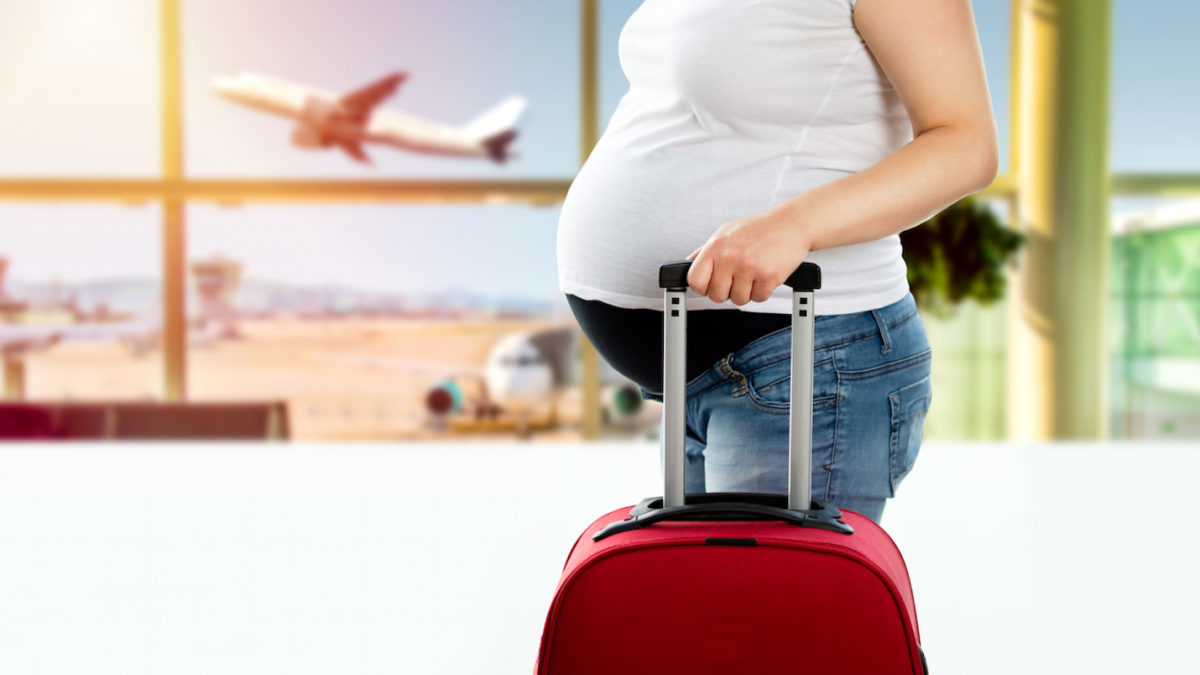Travel Tips for Pregnancy

A Rock-A-Bye Dream — Prenatal Concierge Care
December 5, 2018
A Better Way to OB-GYN Care is Here
January 16, 2019Our world is so mobile today, and more and more moms-to-be want to know when and if it’s safe to travel during pregnancy.
At OB2me, we are all about flexibility, and we want you to enjoy your pregnancy. But there are some tips and guidelines you need to use when traveling.
Traveling is rarely restricted unless there are complications, or you are very close to your delivery date. Always ask your practitioner if travel is safe and approved for you.
More than likely, you’ll receive a green light. But even then, there are several things you need to consider. Here’s our short list along with a link to more travel information.
Choose a destination that is right. Talk with your doctor before you book your trip. Some regions require extra vaccinations and may not be pregnancy-safe. Other areas could be hotbeds for dangerous infections. If you choose a tropical location, make sure to book transports that are air-conditioned. Stay hydrated and avoid long periods in the hot sun.
Make sure your plans include rest and relaxation. Pick a single destination and not a world tour! Go for a relaxed pace. Put your feet up and space your sightseeing and shopping times.
Have a medical plan. Make sure you have the name of a local ob-gyn handy. If you travel abroad contact the International Association for Medical Assistance to Traveler’s. This group can give you a list of English-speaking physicians throughout the world. You can also call the U. S. Embassy or American Consulate for the country you plan to visit.
Add extra insurance. Sign up for reliable travel insurance in case a pregnancy complication requires you to change your plans. In case you need to return home quickly under medical supervision, consider medical evacuation insurance, especially if you’re traveling abroad.
Check with your airlines or cruise line. Check for any special regulations. Most cruise lines will not allow pregnant guests greater than 24 weeks gestation and they require a note from your provider. If you plan air travel in the last trimester, check with your airline before you fly — some restrict how late in pregnancy you can board a plane.
Stand, walk, stretch and don’t just sit. Pregnant women are at higher risk for developing blood clots. So, avoid sitting still for long periods of time. Whether flying or driving, take breaks at least every 2 hours, walk around and stretch for 15 minutes and empty your bladder each break.
Eat healthy and stay hydrated. Continue to drink plenty of water and eat healthy. Whole-wheat crackers, pasteurized cheese sticks, fruit (dried or fresh), veggies, seeds and nuts, yogurt, granola bars and whole-grain cereals are all healthy choices that are easy to pack in your carry-on. Avoid eating fried or spicy foods on the day of travel.
Buckle up correctly. Wear your seat belt every time you ride in a car. Buckle the belt low on your hipbones, below your belly. Place the shoulder belt off to the side of your belly and across the center of your chest (between your breasts). Plan to make frequent stops so that you can move around and stretch your legs.
Read more about safety concerns and traveling while pregnant.




